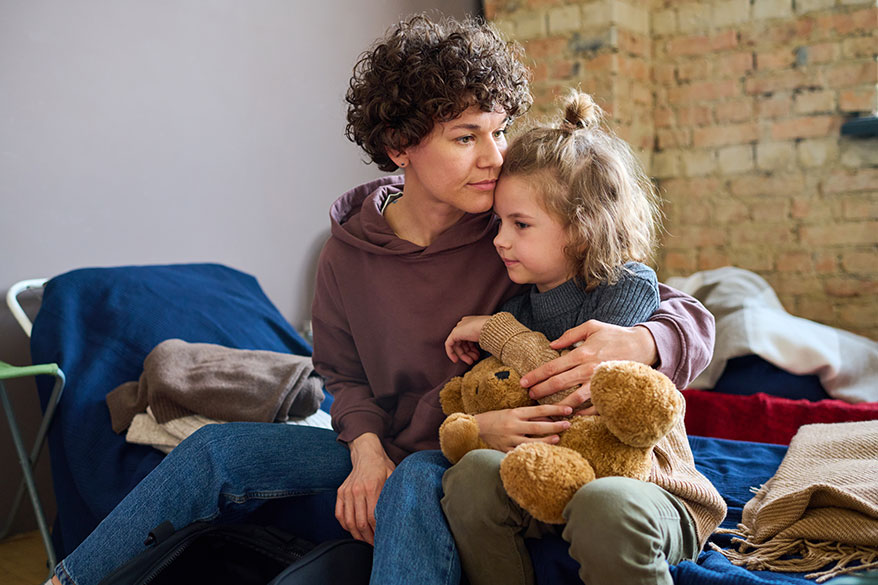Expert blog: It might be 2024, but there’s still no room at the Inn for Mary and her newborn
Associate Professor Liz Curran, Nottingham Law School, explores legal support for women and children escaping domestic violence.
By Helen Breese | Published on 18 December 2024
Categories: Press office; Research; Nottingham Law School;

Refuge notes that on average one woman is killed by an abusive partner or ex partner every five days in England and Wales, and there are around seven attempts before a woman leaves for good. Leaving is a process, not a single act.
Domestic abuse gets worse during pregnancy. 20% of women at Refuge are pregnant or have recently given birth.
On my way home from work, in a doorway I saw a homeless woman with her sleeping bag cuddling up for another night in the cold and gave what I could from my shopping bag and some cash. She has tried to find supported shelter.
Unfortunately, the UK funding and model of free legal support only compounds stress, and risk. Protections exist in law, yet opportunities for responsive and early intervention are being lost.
In one evaluation , loss of funding for an innovative crisis navigator service left the client feeling she had no option but to return to her violent partner without her trusted support. Her lawyer was convinced she would be dead within the year. We could prevent this.

Associate Professor Liz Curran
My research consistently shows holistic, interdisciplinary collaborations between justice and health, allied health and social services, to enable earlier responses and good support at critical points, can make a difference increasing income support, escaping debt and violence, creating pathways to safety and preventing homelessness and eviction.
However, money is currently being wasted in our civil legal aid system.
Effective service delivery evaluations show a positive effect on lives is possible. While welcome, the new Government’s £20 million investment per year in civil legal aid - after decades of cutting, unmet legal need and increasing demand - is a patch-up of a deeply flawed system.
Evidence is clear. Long overdue is evidence-based policy, learning from effective models elsewhere and pockets of good practice.
In the meantime, opportunities for women and children are being lost.
The problem is the lack of free legal support for women and children experiencing domestic abuse. There are solutions to enable earlier interventions to improve safety and prevent homelessness for Mary and the child.
I have developed my evidence-based ideas through research with people experiencing domestic abuse. These ideas show how the UK’s legal assistance can be enhanced to reduce risk and stress created by the currently fragmented, siloed, unnavigable systems.
We can do better. Please at this time of giving and Christmas keep in mind the need for improved systems responses and show capacity. ‘There but the grace of God’… it could be any of us or any of our friends and family that need to escape violence taking their child with them.
The streets are not safe and are not places to bring up or protect women and their children. There needs to be more effort to make a difference.
Dr Liz Curran, Associate Professor, Nottingham Law School
Read more about Dr Curran's research into effective justice interventions.
Notes for Editors
Press enquiries please contact Helen Breese, Public Relations Manager, on telephone +44 (0)115 848 8751, or via email.
Further reading with suggestions for improvement: ‘Sharing elements of effective practice to address earlier, signs of family violence’, 2019; book 'Better Law for a Better World' 2023, Routledge UK; ‘Evaluating projects in multifaceted and marginalised communities: the need for mixed approaches’ (with Pamela Taylor- Barnett) 2019; 'From Fragmented to Holistic: Starting the evidence base the client centred practice through a navigator.' 2021; 'Getting out of Debt: The Road to Recovery for Victim Survivors of Family Violence' 2020 , Justice and Regulation and evidence to the UK Parliamentary Committees in 2024 and 2022.